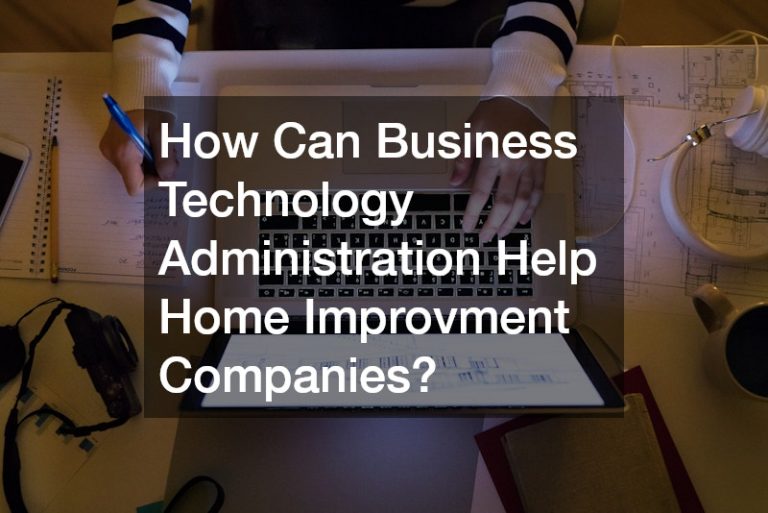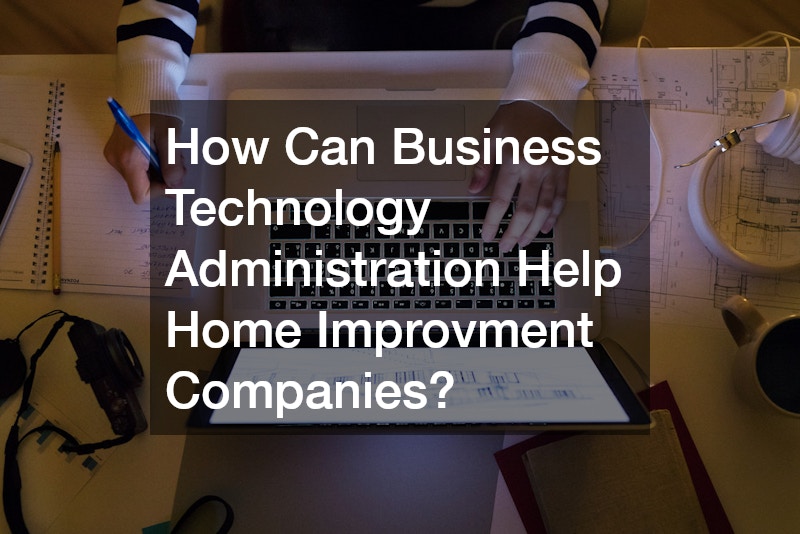The auto industry is undergoing significant transformation, driven by technological advancements and increased consumer expectations. One of the critical enablers of this transformation is IT Service Management (ITSM). By integrating ITSM practices, auto shops, including those specializing in auto tinting services and paintless dent removal, are enhancing their operational efficiency, cost-effectiveness, and customer satisfaction.
The benefits of IT Service Management extend beyond mere operational improvements; they are pivotal in enhancing security, ensuring compliance, and fostering innovation within the auto sector. With advanced technologies such as intrinsically safe tablets and wireless security systems, auto shops can secure sensitive customer data and streamline processes. Additionally, digital insurance enrollment platforms are now being utilized to simplify interactions with an business auto insurance agent, significantly improving customer experiences in the auto insurance arena.
As we delve deeper into this article, we will explore various specific benefits of IT service management, focusing on how these practices can contribute to the overall success and sustainability of businesses in the auto industry. From improving communication to aiding in vendor management, the role of technology in the auto detailing industry is undeniable. Let’s uncover how effectively implementing ITSM can reshape the auto landscape.
1. How Does IT Service Management Improve Operational Efficiency?
Operational efficiency plays a crucial role in the profitability and sustainability of auto shops. IT Service Management provides structured processes and frameworks that streamline operations, reducing downtime and enhancing productivity. By automating routine tasks and optimizing workflows, the benefits of IT service management become evident in the way auto shops operate daily.
Moreover, the integration of technologies such as wireless security and intrinsically safe tablets allows for real-time monitoring and management of different operational aspects. These advancements not only improve service delivery but also minimize human error, resulting in faster turnaround times for services such as paintless dent removal and auto tinting services. Consequently, auto shops can serve more customers without compromising on quality, thereby maximizing their operational output.
Additionally, the role of technology in auto detailing industry has proven transformative, particularly in maintaining comprehensive databases for customer interactions and service requests. With ITSM tools, employees can easily access customer histories and preferences, leading to personalized service offerings. This influx of information at their fingertips enhances decision-making and further improves operational efficiency, reinforcing the business’s competitive edge.

2. What Are the Cost Benefits of IT Service Management in Auto Industry?
Cost management is a primary concern for auto shops, especially in a competitive market. Implementing IT Service Management helps streamline various business operations, leading to significant cost savings. By reducing wasted resources and minimizing downtime, auto shops can allocate their financial resources more efficiently, directly affecting their bottom line.
For instance, utilizing digital insurance enrollment platforms allows auto shops to facilitate smoother transactions and reduce administrative costs associated with insurance processing. This digital approach not only saves time but also decreases the need for extensive computer services that traditionally require a significant investment. As such, the financial benefits derived from these innovations further highlight the advantages of IT service management.
Moreover, the adoption of an organized ITSM framework reduces incidents of costly errors and service interruptions. In an industry where a multitude of services, including auto insurance processing and customer service, relies heavily on technology, maintaining consistently high service levels can protect auto shops from potential revenue losses. The compounded savings over time showcase a clear and quantifiable advantage of investing in ITSM.
3. How Does IT Service Management Enhance Customer Satisfaction?
In today’s competitive landscape, customer satisfaction is a key determinant of a business’s success. IT Service Management enhances customer experiences through improved communication and quicker response times. By employing structured service delivery methods, auto shops can facilitate more effective interactions with customers, ultimately increasing repeat business.
The role of technology in the auto detailing industry allows for the collection of feedback and service journey analytics, which inform adjustments to service offerings. This customer-centric approach leads to tailored experiences that align with client expectations, fostering loyalty and growing the customer base. Furthermore, the integration of wireless security systems ensures that customer data remains safe and private, which is instrumental in building trust.
Utilizing platforms that streamline digital insurance enrollment also elevates customer satisfaction by simplifying processes. When customers can navigate complex insurance options through user-friendly interfaces, their overall experience improves dramatically. Such advancements showcase how the benefits of IT service management translate directly into enriched customer relationships and enhanced loyalty.
4. What Role Does IT Service Management Play in Compliance and Security?
In the auto industry, compliance with local and federal regulations is paramount. IT Service Management provides a framework that helps auto shops adhere to various regulatory requirements seamlessly. By implementing best practices in data management and protection, organizations can safeguard themselves against potential legal challenges related to privacy breaches.
Moreover, robust ITSM systems facilitate the implementation of wireless security measures that protect sensitive customer information, particularly in the realms of auto insurance and financial transactions. The significance of such security cannot be understated, as data breaches can incur substantial penalties and damage to a company’s reputation. The deployment of intrinsically safe tablets ensures that sensitive information can be accessed securely, mitigating risks associated with digital operations.
As regulations evolve, IT Service Management allows auto shops to swiftly adjust their compliance processes accordingly. This agility is crucial in maintaining uninterrupted operations while addressing any changing demands from regulatory bodies. Understanding and navigating these compliance landscapes is a significant benefit of IT service management that cannot be overlooked.

5. How Can IT Service Management Foster Innovation?
Innovation is vital for any industry looking to thrive and adapt in a fast-paced environment. IT Service Management fosters an innovative culture within auto shops by providing structured methodologies that encourage experimentation and the adoption of new technologies. This freedom to innovate translates to better services such as advanced auto tinting solutions and enhanced customer engagement strategies.
Through an ITSM framework, auto shops can continuously improve their service offerings by integrating emerging technologies that enhance operational processes and service delivery. For instance, leveraging AI and data analytics capabilities can transform how auto shops assess customer needs and preferences. The continuous feedback loops established through ITSM provide critical insights that empower organizations to innovate smarter and move faster.
Furthermore, the promotion of cross-functional collaboration facilitated by ITSM tools is essential for innovation. When teams can communicate effectively and share ideas across technical and operational boundaries, creative solutions to existing challenges will surface more frequently. Introducing new services or refining existing ones on a continuous basis exemplifies how the benefits of IT service management drive innovation.
6. How Does IT Service Management Support Decision-Making?
Data-driven decision-making is essential for auto shops aiming for sustainable growth. IT Service Management provides sophisticated tools that aid in the analysis and visualization of data, enhancing managerial insights. By streamlining the flow of information across various departments, automobile enterprises can make informed decisions based on comprehensive data analysis.
Centralized data access enables auto shops to monitor performance metrics in real-time, ensuring that leadership can quickly respond to market changes and internal challenges alike. As businesses analyze trends related to customer preferences—particularly in services like paintless dent removal—they can adjust strategies accordingly. This proactive approach ensures that companies remain agile and relevant in a rapidly evolving market context.
Additionally, the role of technology in the auto detailing industry allows organizations to predict future trends and consequently adapt plans. ITSM’s ability to deliver actionable insights leads to more informed strategic planning and resource allocation. This dynamic decision-making support epitomizes one of the key benefits of IT service management in the automotive sector.
7. What Are the Benefits of Automation in IT Service Management?
Automation is a cornerstone of modern IT Service Management initiatives. It simplifies and enhances processes across the entire operational landscape of auto shops, allowing them to operate with greater efficiency. Automated tasks reduce the likelihood of errors and free up staff to focus on high-impact activities, thereby optimizing resource utilization.
In addition, the integration of automated systems facilitates the management of service requests and customer inquiries more effectively. When customers reach out for services such as auto insurance or mechanical repairs, automated response systems can guide them through initial stages promptly. The advantage here is not solely in the time saved but also in providing immediate assistance, thereby improving customer experience.
Furthermore, the role of technology in automating digital insurance enrollment platforms exemplifies how automation enhances strategic operations. By streamlining these processes, auto shops reduce administrative burdens and accelerate service delivery timelines. The overall benefits of IT service management manifest through increased efficiency, responsiveness, and ultimately, customer satisfaction.

8. How Does IT Service Management Improve Communication within the Auto Industry?
Effective communication is integral to successful operations within the auto industry. IT Service Management frameworks facilitate streamlined communication channels across departments, ensuring that information flows seamlessly. Enhanced communication allows for better coordination among teams, particularly when delivering complex services like auto tinting or advanced servicing work.
Furthermore, ITSM tools provide platforms for sharing real-time information, ensuring employees are always up to date with the latest developments and customer requests. This information sharing significantly reduces the chances of miscommunication and errors, enhancing overall operational fluidity. When teams can communicate effectively, they can respond positively to issues or inquiries, reinforcing customer trust.
The use of collaboration technologies, such as project management software and customer relationship management (CRM) systems, plays a vital role in improving communication. Auto shops can track customer interactions and service requests comprehensively, leading to enhanced service delivery. The evident outcome of these improved communication channels is a noteworthy benefit of IT service management that can drive customer loyalty and satisfaction.
9. How Can IT Service Management Aid in Vendor Management?
Vendor management is a critical aspect of maintaining operational fluidity in the auto industry. IT Service Management provides the frameworks necessary for effective vendor oversight, enabling auto shops to evaluate vendor performance and assess potential risks systematically. This level of scrutiny ensures that businesses only engage with reliable vendors who align with their operational standards.
Additionally, automated tracking systems within an ITSM framework enable businesses to manage contracts, transaction histories, and vendor relationships seamlessly. This clarity allows auto shops to negotiate better terms and conditions, ultimately resulting in cost savings. The ability to analyze vendor performance metrics leads to informed decisions regarding procurement and partnerships, benefiting the entire operation.
The implementation of ITSM tools enhances communication with vendors, providing channels for real-time updates on project statuses and deliveries. Open lines of communication help to quickly resolve issues that might arise, maintaining operational efficiency. A proactive approach to vendor management is another significant benefit of IT service management that translates to better overall performance in the auto sector.

10. What Are the Strategic Advantages of IT Service Management for Long-term Growth?
In the long term, the strategic advantages of IT Service Management pave the way for sustainable growth in the auto industry. By systematically optimizing processes and improving resource allocation, auto shops can scale their operations without sacrificing quality. This attractiveness is crucial for businesses aspiring to expand their market presence and enhance their service offerings.
Moreover, as ITSM facilitates continuous improvement, businesses can keep pace with industry trends and evolving consumer preferences. Adapting promptly to these changes is essential for maintaining competitive advantages, especially given the rapid advancements in technologies like automated systems and digital solutions. As such, the alignment of IT service management with strategic goals is imperative for fostering innovation and efficiency across all operational facets.
In conclusion, investing in IT Service Management yields compelling benefits beyond immediate operational needs. Organizations that leverage ITSM effectively position themselves for not just survival but flourishing in an increasingly complex and technology-driven landscape. The benefits of IT service management are multifactorial—addressing operational efficiency, cost savings, customer satisfaction, security, and long-term growth strategies—ensuring sustainability in the modern auto industry.
Conclusion
As we have explored throughout this article, the role of IT Service Management in the auto industry encompasses many facets that significantly define operational success. From enhancing operational efficiency and reducing costs to fostering a culture of innovation, the comprehensive benefits of IT service management are vital for any forward-thinking auto shop. It’s clearer than ever that embracing ITSM practices is not just beneficial but necessary in a landscape that is rapidly evolving.
The future of the auto industry hinges on the ability to integrate advanced technologies and streamline services through ITSM frameworks. From business auto insurance agent to dent removal professionals, by prioritizing these implementations, auto shops can ensure that they meet customer expectations while remaining agile in the face of change. Ultimately, recognizing and harnessing the benefits of IT service management will be the cornerstone of competitive advantage in the years to come.








